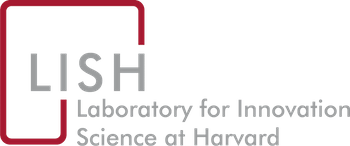Background
Engaging frontline clinicians and staff in quality improvement is a promising bottom-up approach to transforming primary care practices. This may be especially true in federally qualified health centers (FQHCs) and similar safety-net settings where large-scale, top-down transformation efforts are often associated with declining worker morale and increasing burnout. Innovation contests, which decentralize problem-solving, can be used to involve frontline workers in idea generation and selection.
Objective
We aimed to describe the ideas that frontline clinicians and staff suggested via organizational innovation contests in a national sample of 54 FQHCs.
Interventions
Innovation contests solicited ideas for improving care from all frontline workers—regardless of professional expertise, job title, and organizational tenure and excluding those in senior management—and offered opportunities to vote on ideas.
Participants
A total of 1,417 frontline workers across all participating FQHCs generated 2,271 improvement opportunities.
Approaches
We performed a content analysis and organized the ideas into codes (e.g., standardization, workplace perks, new service, staff relationships, community development) and categories (e.g., operations, employees, patients).
Key Results
Ideas from frontline workers in participating FQHCs called attention to standardization (n = 386, 17%), staffing (n = 244, 11%), patient experience (n = 223, 10%), staff training (n = 145, 6%), workplace perks (n = 142, 6%), compensation (n = 101, 5%), new service (n = 92, 4%), management-staff relationships (n = 82, 4%), and others. Voting results suggested that staffing resources, standardization, and patient communication were key issues among workers.
Conclusions
Innovation contests generated numerous ideas for improvement from the frontline. It is likely that the issues described in this study have become even more salient today, as the COVID-19 pandemic has had devastating impacts on work environments and health/social needs of patients living in low-resourced communities. Continued work is needed to promote learning and information exchange about opportunities to improve and transform practices between policymakers, managers, and providers and staff at the frontlines.








 Whether you build your own ML models or grab an off-the-shelf AI solution from a startup, your team can integrate machine learning into your business today. In the March session of AI in Enterprise,
Whether you build your own ML models or grab an off-the-shelf AI solution from a startup, your team can integrate machine learning into your business today. In the March session of AI in Enterprise,  As the Global Artificial Intelligence Lead and innovation lead within PwC’s Emerging Technology practice,
As the Global Artificial Intelligence Lead and innovation lead within PwC’s Emerging Technology practice,  In the April session of AI in Enterprise,
In the April session of AI in Enterprise, 